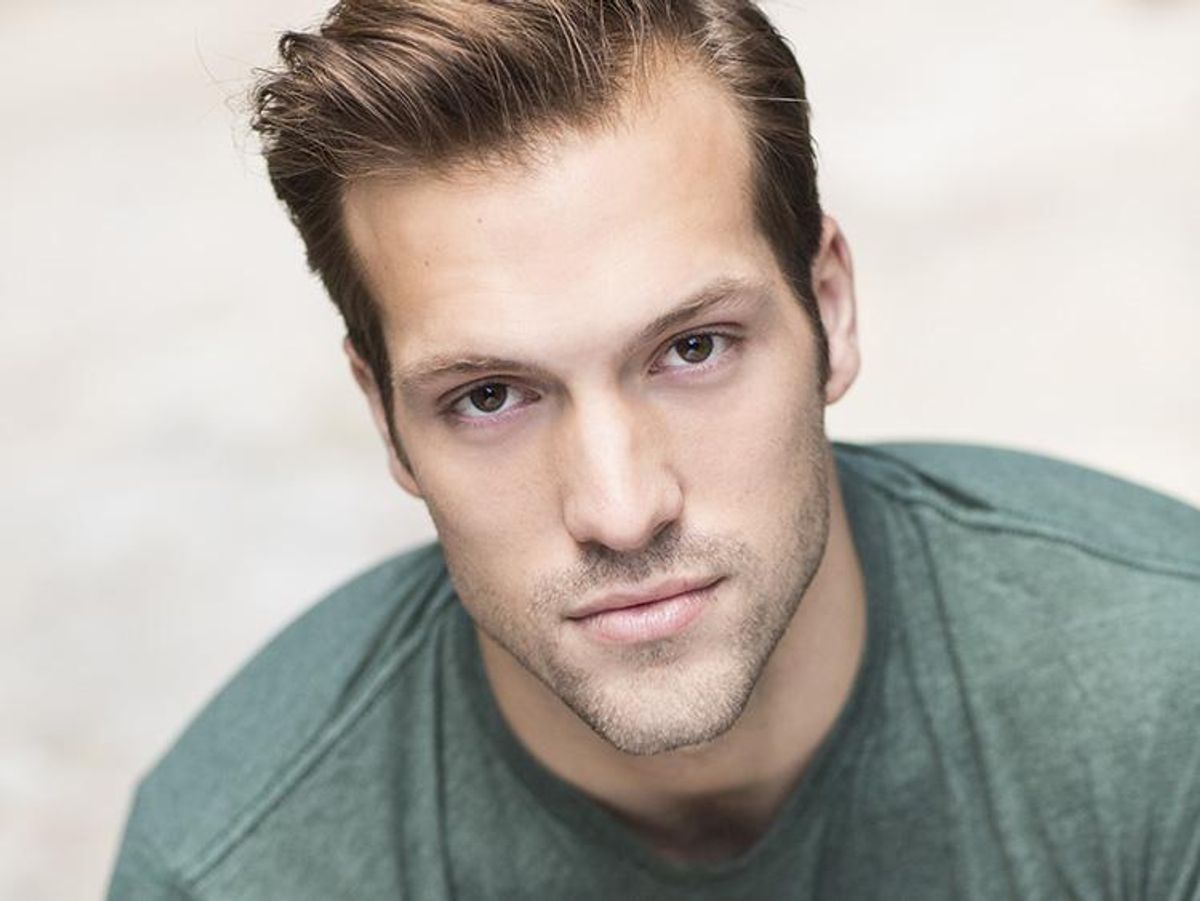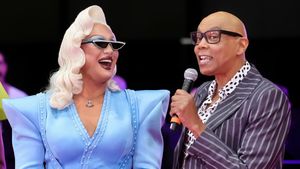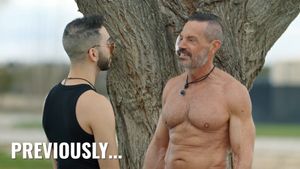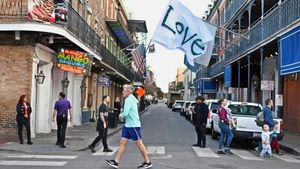Mess is the semi-autobiographical account of writer/star Paul Victor’s first 6 months living with HIV. Directed by Jason Lee Courson and executive produced by Billy Porter and Michael J Burg, the series explores issues of being poz in the 21st century, aspects of the sex work industry, love, life, relationships, and sex within the gay community.
Mess stars Paul Victor as Andy, a 20-something aspiring actor trying to navigate life iin New York City after he’s thrown a major curveball when he’s diagnosed with HIV. Plus spoke to Victor about the series.
The title is apt. Andy and his friends are total Messes. Are these characters really representative of your life?
I mean it’s all a fictionalized version of real life so things are certainly exaggerated and whatnot but yes, I am often as big a mess as Andy. Sometimes bigger. I think most young people that move to a city like New York and are just sort of figuring out how to survive go through a period where they’re not exactly…polished. I wouldn’t say I’ve gotten it all together now either, but maybe we just get better at faking it. I think being a mess is a part of becoming an adult.
How would you describe how you dealt with the stigma since being diagnosed? Were you already a pretty progressive thinker who understood that this could and does happen to anyone—it's a disease—or was it something that you never thought would happen to you?
I don’t know if I just got lucky or if I’m just oblivious but I don’t think I encountered much stigma. I’ve never been good at keeping secrets and not being me. Personally, I’m happiest and most comfortable when all of my cards are on the table, so keeping my status a secret was never really even considered. Sure, there are assholes everywhere but generally I’ve found that when confronted with my truth in person—people tend to be supportive. When you put a face to something scary or taboo or whatever, it suddenly becomes real and grounded and therefor it can’t be as scary. Hopefully Mess helps put a face to HIV on a bit of a bigger scale. I didn’t necessarily think it would happen to me. I think I was of the mindset that a) I was invincible and b) it happens to other people. I think a lot of us probably feel that way. Its a pretty tried and true survival/defense/delusion mechanism moment. But, I will say that for a fair portion of my adolescence I thought that to be gay meant to have AIDS. I was just coming to terms with my own sexuality and I thought well, “I’m gonna grow up and die of AIDS, that’s how gay men die.” The ignorance of youth I guess. I’m grateful every day that I live in an era where that’s not the truth. When I was diagnosed I was terrified and in a lot of pain but I also remember a very palpable sense of relief. Here was this thing that I was TERRIFIED of, and all of a sudden I had it and the world kept spinning and I didn’t die and the joys of life and the mundane of the day-to-day, and the craziness of being 22 and in New York and not having any money and all of that shit that I was already dealing with pre-diagnosis was still there. The only thing that really changed was my perspective. And for that I’m oddly grateful.
Do you think people in the United States’ view of HIV has become, pardon the pun, more positive?
I can only speak to my experience, and I know that for a large portion of the people in my life (particularly back home), I am their only real-life representation of HIV. So living my life, and pursuing my dreams, and blah blah insert cliché here, I know has changed some minds in that respect. There’s still plenty of people who think it's a death sentence and a disease of only slutty people. Even in the gay community and with the advent or PrEP, there’s slut shaming and this idea that if you’re poz or on PrEP then you’re super promiscuous and slutty and ‘asking’ for it. and who fucking cares?! if you’re paying your own rent then fuck whoever you want! You’re an adult! I think part of that stems from the ‘it happens to other people’ defense mechanism I was talking about earlier. HIV can affect anyone. There’s plenty of stories of people seroconverting within monogamous relationships and everything in between. All we can do is be open and honest and tell our stories and hopefully break down stigma, person by person. I’m a believer in nudging the needle, not throwing out the meter altogether. So, we’re so much farther than we were in terms of dealing with the disease and shedding light on its truth, but we also have a long way to go. I would say you can only change a mind that wants to be changed, but I’ve certainly been surprised in the past by how willing and open people are to hearing new perspectives.
What were some shows that inspired the feel of the series?
When I started writing, Girls was having a really huge moment so that definitely influenced me, as well as Sex and the City, Looking, Queer as Folk. Really any of those ‘group of friends trying to make a life in a big city’ shows. I also am a big fan of a handful gay webseries like The Outs, Hunting Season, EastSiders, Undetectable. They all definitely influenced me and the web series in particular gave me a push to actually get it done. Seeing other stories being told this way gave me the inspiration to tell mine. I think anything an artist creates is going to be a mash up of anything they’ve consumed, mixed with their own perspectives. But what I love about Mess, and a lot of the credit goes to Jason Lee Courson in terms of the animation and overall look of the finished product, is that while all of those shows may have been a starting point in some way, I believe that our show is something uniquely its own. The pacing and structure and tone of it overall, is something I haven’t really seen before. And the subject matter is definitely something that isn’t explored much in mainstream entertainment.
The upcoming generation of gay identified males are becoming positive at an alarming rate. Where do you feel like messaging failed your generation?
I think the biggest misstep of the messaging in the media is there’s sort of a gap in terms of HIV storytelling. Everything out there is a period piece of either the 1980s or 1990s when it was tantamount to a death sentence. So we’re brought up being terrified of this thing. Being scared leads to shame and not getting tested or being proactive about your sexual health and a host of other issues that just don’t help anyone. Where are the stories of what HIV is like in the early 2000s? Today? Hopefully Mess does something to advance the overall story of HIV and kids these days will have something to go to to say ‘hey this thing isn’t so scary after all. Getting tested isn’t scary. Questioning condom use isn’t scary. Saying no isn’t scary. HIV isn’t something to take lightly, but we’re not living in the throes of a plague anymore. It’s never been easier to prevent HIV. It’s never been easier to treat HIV. This shit should be shouted from the rooftops and yet the media remains mostly quiet.
Episode one of Mess is available to stream on Vimeo. Season 1 consists of 6 episodes, each around 10 minutes long. Connect with Mess the Series on Vimeo, Facebook and Twitter.
MESS the series Episode 1 from Jason Lee Courson on Vimeo.
















































































